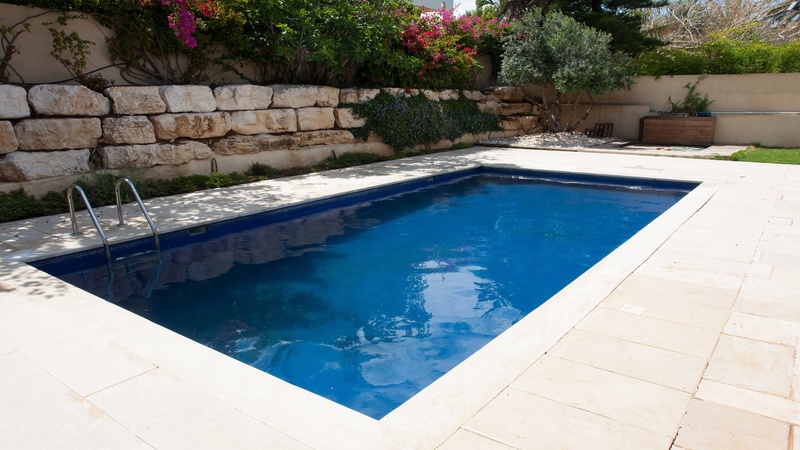Maintaining a clean and functional pool involves more than just ensuring the water is balanced. While many homeowners focus on water chemistry and pool cleaning, an often-overlooked aspect is the cleanliness of the pool tiles. The state of your pool’s tiles directly impacts the efficiency of your pool equipment, and neglecting proper tile maintenance can lead to increased wear and tear on the entire system.
Understanding the connection between pool tile cleaning service and pool equipment inspection is essential for keeping your pool running smoothly, saving you money, and ensuring a long-lasting, enjoyable swimming environment.
How Pool Tiles Affect Equipment Performance
Pool tiles are an integral part of your pool’s overall system. They form the lining around the pool and play a role in the filtration and circulation of water. While the primary function of tiles is aesthetic, they also serve a critical role in maintaining the functionality of the pool’s system. When tiles are not cleaned regularly, they can cause a cascade of issues that affect the performance of pool equipment.
1. Mineral Deposits and Clogging
In pools with hard water, mineral deposits (mainly calcium) can accumulate on the tiles. Over time, these deposits can build up not only on the tiles but also in the filtration system, potentially clogging the filter and pump. A clogged filter reduces water flow, forcing the pump to work harder to circulate the water. This added strain can cause wear on the pump motor and reduce the efficiency of the entire system.
Regular pool tile cleaning service ensures that these mineral deposits are removed before they have a chance to spread to other parts of the system. By preventing buildup on the tiles, you help protect your filter and pump from unnecessary strain, ensuring they perform optimally.
2. Algae Growth and Filtration Strain
Tiles that are left uncleaned for long periods are prone to the growth of algae and mold, particularly in shaded areas or regions with high humidity. As algae grow on the tiles, it can lead to cloudiness in the pool water. These contaminants enter the pool’s filtration system, forcing it to work harder to maintain water clarity. The filter may become clogged with organic matter, which decreases the effectiveness of water circulation and requires more frequent cleaning and maintenance.
3. Grime and Debris Blocking Water Flow
Over time, dirt and grime can accumulate on the pool tiles, especially in areas where water doesn’t flow as easily. These debris particles, though small, can block water circulation paths and increase the strain on the pool’s circulation system. When the tiles are clean, water flows more freely, allowing the filtration system to function more effectively.
Why Pool Tile Cleaning and Equipment Inspection Go Hand-in-Hand
The connection between pool tile cleaning service and pool equipment inspection is clear: the maintenance of one directly affects the efficiency of the other. Here’s why scheduling both services regularly is essential:
1. Efficiency of Pool Equipment
When tiles are cleaned regularly, they help maintain proper water flow and prevent debris and mineral buildup from clogging the pool’s filtration system. This reduces the workload on the pool equipment, extending its lifespan and ensuring it operates efficiently. For example, a clean pool filter is better able to remove contaminants from the water, while a well-maintained pump can circulate the water at an optimal rate.
2. Cost Savings in the Long Run
Preventing mineral buildup on tiles and in the pool’s filtration system can help reduce energy costs. When the pool’s equipment operates more efficiently, it consumes less energy, which translates into lower electricity bills. Additionally, well-maintained pool equipment is less likely to break down, saving you from the costs of repairs or replacements.
3. Improved Water Quality
When both the tiles and equipment are properly maintained, the water quality improves as well. Clean tiles prevent debris and algae from entering the filtration system, while a well-functioning filter ensures that the water stays clean and clear. Poor water quality can lead to discomfort for swimmers, increased chemical usage, and the growth of harmful bacteria or algae.
How to Maintain Your Pool Tiles and Equipment
Here are a few tips for maintaining your pool tiles and equipment:
- Regular cleaning: Clean your pool tiles every 6–12 months, depending on usage and water conditions. Use gentle cleaning solutions and soft brushes to avoid damaging the tiles or grout.
- Check for cracks and leaks: Inspect the tiles and grout for cracks or loose tiles that may allow water to seep behind them. If you notice any issues, schedule professional pool tile repair.
- Maintain water chemistry: Regularly test and adjust your pool’s water chemistry to prevent calcium buildup and algae growth on the tiles. Proper water balance helps extend the lifespan of both tiles and equipment.
- Schedule inspections: Have your pool equipment inspected at least once a year to ensure that the pump, filter, and other components are functioning properly.
A clean pool is more than just an aesthetic choice—it’s essential for the overall health and performance of your pool system. The cleanliness of your pool tiles directly affects the efficiency of your pool’s equipment. Regular pool tile cleaning service and pool equipment inspection not only enhance the look of your pool but also help prevent costly repairs, reduce energy consumption, and improve water quality.
For homeowners looking to keep their pool in top shape, partnering with a reliable pool cleaning company like Vistancia Premier Pools ensures that both your tiles and equipment are maintained properly.


